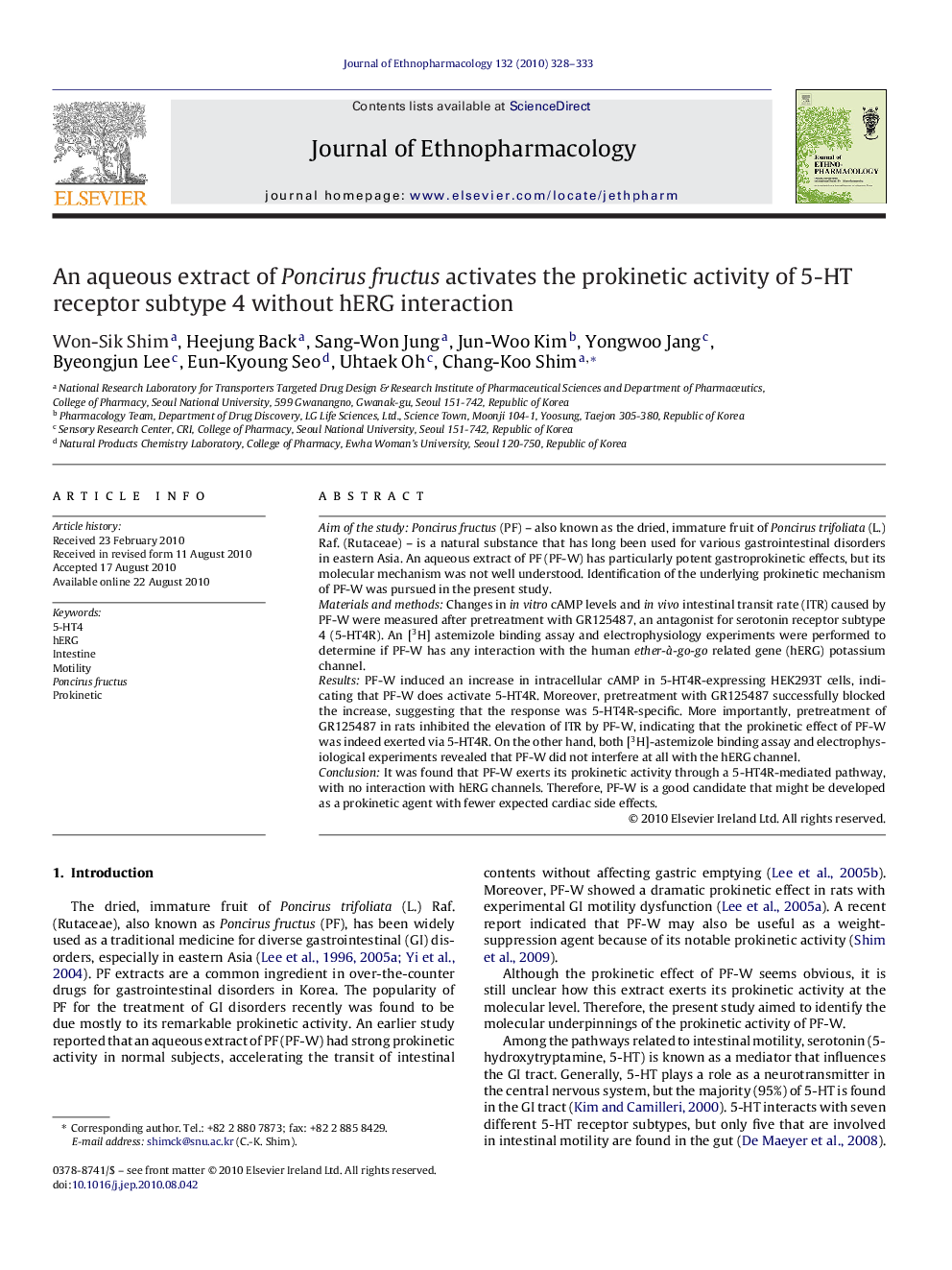| Article ID | Journal | Published Year | Pages | File Type |
|---|---|---|---|---|
| 2545685 | Journal of Ethnopharmacology | 2010 | 6 Pages |
Abstract
Aim of the studyPoncirus fructus (PF) - also known as the dried, immature fruit of Poncirus trifoliata (L.) Raf. (Rutaceae) - is a natural substance that has long been used for various gastrointestinal disorders in eastern Asia. An aqueous extract of PF (PF-W) has particularly potent gastroprokinetic effects, but its molecular mechanism was not well understood. Identification of the underlying prokinetic mechanism of PF-W was pursued in the present study.Materials and methodsChanges in in vitro cAMP levels and in vivo intestinal transit rate (ITR) caused by PF-W were measured after pretreatment with GR125487, an antagonist for serotonin receptor subtype 4 (5-HT4R). An [3H] astemizole binding assay and electrophysiology experiments were performed to determine if PF-W has any interaction with the human ether-Ã -go-go related gene (hERG) potassium channel.ResultsPF-W induced an increase in intracellular cAMP in 5-HT4R-expressing HEK293T cells, indicating that PF-W does activate 5-HT4R. Moreover, pretreatment with GR125487 successfully blocked the increase, suggesting that the response was 5-HT4R-specific. More importantly, pretreatment of GR125487 in rats inhibited the elevation of ITR by PF-W, indicating that the prokinetic effect of PF-W was indeed exerted via 5-HT4R. On the other hand, both [3H]-astemizole binding assay and electrophysiological experiments revealed that PF-W did not interfere at all with the hERG channel.ConclusionIt was found that PF-W exerts its prokinetic activity through a 5-HT4R-mediated pathway, with no interaction with hERG channels. Therefore, PF-W is a good candidate that might be developed as a prokinetic agent with fewer expected cardiac side effects.
Keywords
Related Topics
Health Sciences
Pharmacology, Toxicology and Pharmaceutical Science
Pharmacology
Authors
Won-Sik Shim, Heejung Back, Sang-Won Jung, Jun-Woo Kim, Yongwoo Jang, Byeongjun Lee, Eun-Kyoung Seo, Uhtaek Oh, Chang-Koo Shim,
